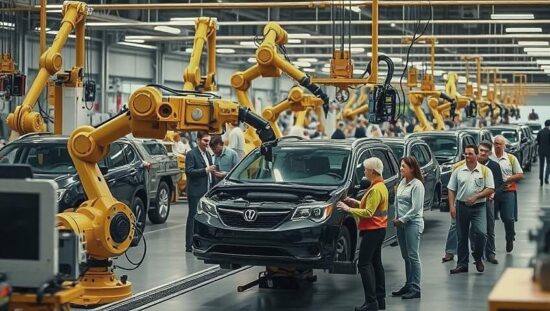Volkswagen has managed to avert immediate production disruptions despite a recent shortage of semiconductors, a reprieve attributed to secured supply lines lasting at least until the end of next week, according to a company spokesperson quoted in the Handelsblatt. However, the situation remains volatile and the potential for sudden impacts on the automaker’s global production network remains a concern.
The current bottleneck stems from an export restriction imposed by China, impacting key components supplied by Nexperia, a Dutch-Chinese semiconductor manufacturer. Nexperia, now a subsidiary of the Chinese electronics conglomerate Wingtech, holds a dominant market share of approximately 40% in the standard semiconductor sector, rendering it a critical supplier for numerous industries, particularly within the automotive sphere. These “simple” chips are integral to numerous control units supplied by companies like Bosch and ZF to vehicle manufacturers.
While Volkswagen has secured a short-term buffer, other major German automakers, BMW and Mercedes-Benz, are closely monitoring the evolving situation, with their plants currently operating normally. Industry analysts warn, however, that a swift resolution to the underlying geopolitical tensions-a complex interplay between China, the Netherlands and the United States-appears increasingly improbable.
The incident highlights the precarious reliance of the European automotive sector on Chinese supply chains, exposing vulnerabilities exacerbated by escalating strategic competition. Experts are questioning the long-term implications for European industrial policy, prompting renewed debate regarding the diversification of supply sources and the potential for reshoring critical component manufacturing. The fragility of Nexperia’s supply chain, intrinsically linked to Chinese government control, raises serious questions about the security and reliability of crucial industrial inputs and the potential for politically motivated disruptions that could cripple European economies. The incident may galvanize efforts to reduce dependency and bolster domestic semiconductor capabilities, but the immediate prospect of sustained stability remains clouded by ongoing geopolitical uncertainty.





